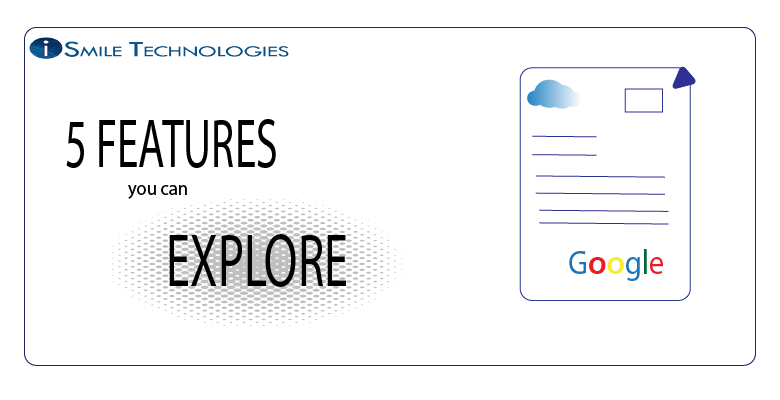The 2021 virtual event Google Cloud Next, the tech giant’s flagship digital event, focused, as expected, on giving enterprise customers more choices about where and in which cloud they run their workloads.
Among a host of major new features announced were the Google Distributed Cloud, which the company says will extend Google Cloud Platform (GCP) services to edge locations and on-premise data centres.
Other new features include an artificial intelligence portfolio, Intelligent Products Essentials, and a range of new data and analytics capabilities. Big Query Omni, a multi-cloud-focused data analytics solution, has been made generally available for developers.
iSmile Technologies takes a closer look at the top five new features from this year’s Google Cloud Next-
1) A new portfolio for the distributed cloud
Google has introduced the Distributed Cloud Solutions Portfolio, which aims to solve problems associated with migrating to the cloud, focusing on reducing costs, low latency, and privacy issues. The portfolio is based on Anthos, software for container clusters instead of cloud virtual machines (CVMs), hardware, and software components.
The partners that will initially support the portfolio are NetApp, Cisco, and Dell. The first two solutions to launch as part of the portfolio are Google Distributed Cloud Edge for edge computing and Google Distributed Cloud Hosted for on-premises.
2) Vertex AI Workbench for Developers
Vertex AI Workbench will act as a managed service for all Google’s data services, such as Dataplex and BigQuery. The tool will make it easier for developers to build and deploy machine learning models (ML) along with a unified AI platform. “Because it’s a managed service, it’s super easy to deploy and available out of the box without having to configure it in any infrastructure,” said Gerrit Kazmaier, vice president and general manager of Database, Data Analytics, and Looker at Google.
3) BigQuery Omni targets multi-cloud environments
The general availability of BigQuery Omni will help users combine data from Google, AWS, Oracle, and others into a single analytics platform, meaning it will help create cross-cloud analytics. The solution aims to break down data silos in multi-cloud environments and provide interoperability for a unified analytics solution across clouds.
BigQuery Omni was first introduced on Microsoft Azure in 2020 and is now generally available.
Ready to experience the full power of cloud technology?
Our cloud experts will speed up cloud deployment, and make your business more efficient.
4) Intelligent Cloud Products for AI-based Solutions
Cloud Intelligent Products will be a packaged solution aimed at manufacturers looking to incorporate AI into their intelligent products. The solution is primarily targeted at healthcare, retail, and supply chain customers and aims to connect industry participants to create more value for the entire environment. The solution will be beneficial because it will provide new ways for employees to capture and collect data while enabling better customization for end-users, Google said.
5) Google Workspace
Google Workspace, formerly known as G Suite, includes familiar apps like Gmail, Drive, Docs, Meet, etc. With the latest update, users can use AppSheet’s no-code apps within Gmail. AppSheet allows users to create apps without code. It also let’s chat users and Google Spaces users create and monitor new themes on mobile.
In addition, Google Meet now has client-side encryption that gives businesses control over encryption keys, and there are also data loss prevention features for added security. Another security feature is Work Safer, an anti-threat engine for Workspace and other Google products.
Google also previewed the managed, serverless, and auto-scaling Apache Spark service on GCP. Apache Spark is an open-source processing framework for large-scale analytics applications.








